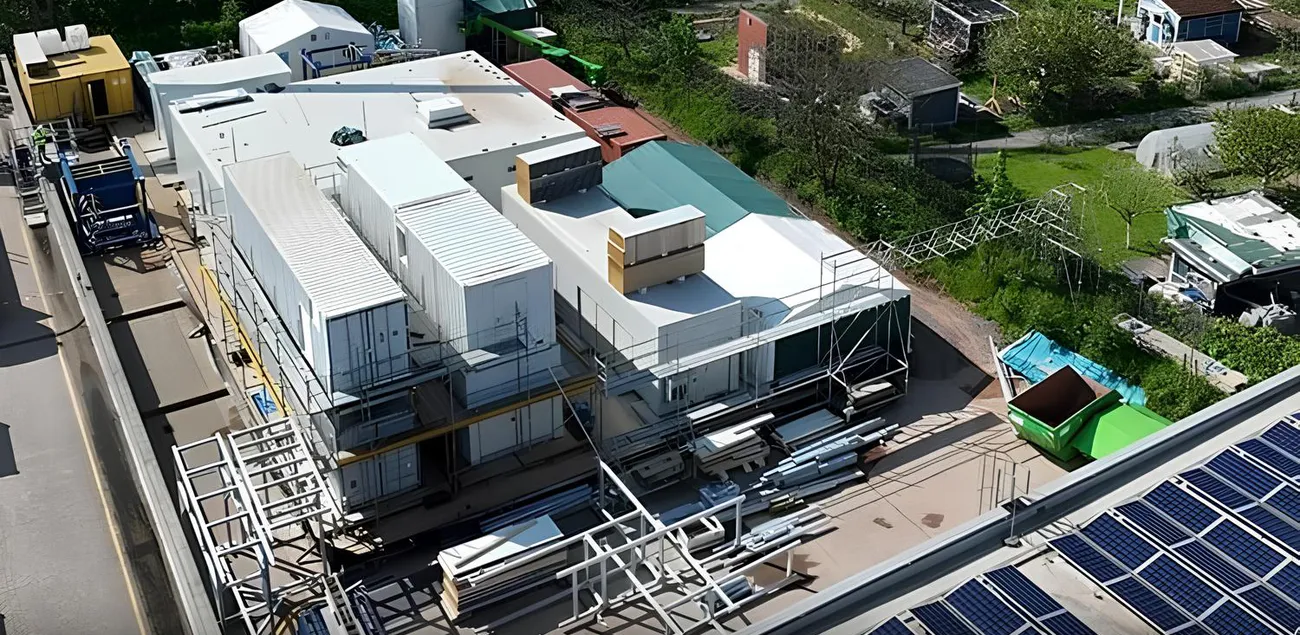
Vulcan Energy, which is developing a geothermal-lithium project in Germany’s Upper Rhine Valley, has won €103.6 million ($121.8 million) in federal and state grants to build a commercial lithium-chloride extraction plant at Landau in Rhineland-Palatinate and a downstream lithium hydroxide conversion facility at Frankfurt-Höchst in Hesse. Together the two sites carry a €690 million ($811.2 million) budget; the public funds will shave a portion off Phase One capex, intended to yield enough lithium for roughly 500,000 electric-vehicle batteries each year.
Public Funding Anchors Domestic Supply Chain
The grants, to be disbursed over 36 months starting 1 October 2025, back construction of a commercial Lithium Extraction Plant (LEP) at Landau and a Central Lithium Plant (CLP) at Frankfurt-Höchst. Vulcan Energy has already proven out the flowsheet at 1:50-scale pilots: the Lithium Extraction Optimisation Plant (LEOP) turned out first lithium chloride in April 2024, while the Central Lithium Electrolysis Optimisation Plant (CLEOP) produced battery-grade lithium hydroxide monohydrate in November 2024 and early 2025. CEO Cris Moreno said: “We are pleased about the strong and concrete support from the federal government as well as the state governments of Rhineland-Palatinate and Hesse. This funding will enable us to provide sustainable domestic lithium for the German and European electric mobility sector. The raw material drives the energy transition and is key to switching to electric mobility.”
Regulatory and Strategic Context
Berlin’s support dovetails with the EU Critical Raw Materials Act: the Landau sub-project was picked in March 2025 as one of 47 “strategic projects,” underscoring efforts to curb reliance on battery materials imported from South America and China. Parliamentary State Secretary Stefan Rouenhoff said the backing helps establish “sustainable lithium production in Germany” to reinforce supply-chain resilience. State ministers in Rhineland-Palatinate and Hesse separately cast the investment as bolstering industrial competitiveness and local jobs.
Technology and Process
Vulcan Energy’s integrated flowsheet pulls lithium out of hot geothermal brine at Landau via adsorption-based direct lithium extraction (A-DLE), then ships the lithium chloride solution to Frankfurt for electrochemical conversion into lithium hydroxide. Both steps run on renewable heat and power generated from the same resource. Phase One is slated to produce 24,000 tonnes a year of lithium hydroxide monohydrate, with first commercial deliveries pencilled in for 2026 under existing offtake contracts with automakers and cathode makers.
Market Impact and Pricing
If commissioned on schedule, the two plants would hand Germany its first large-scale domestic stream of lithium at a time when most European rivals are still on the drawing board—Portugal’s Barroso hard-rock project, for instance, is targeting first output in 2027. Homegrown material could modestly reduce exposure to wild international swings: spot lithium in China recently changed hands around 70,550 CNY/tonne (about $9,835/tonne), while U.S. lithium hydroxide averaged roughly $10,340/tonne in June 2025 amid lingering oversupply.
Company Background and Market Context
Australia-listed Vulcan Energy holds licences across more than 1,000 km² in the Upper Rhine Valley, described by project financiers as Europe’s largest lithium resource. The firm’s “Zero Carbon Lithium” strategy pairs geothermal power generation with lithium extraction to target low-emission output—a key factor behind grant eligibility and earlier pre-qualification for European Investment Bank funding. Vulcan has locked in long-term offtake agreements with Volkswagen, Stellantis, Renault, LG and Umicore to begin supply from mid-decade, supporting localisation of Europe’s battery supply chain.
Lithium remains a critical ingredient in rechargeable batteries for electric vehicles and stationary storage. Global prices have retreated sharply from 2022 peaks as new supply and softer EV demand growth weighed on the market, with current carbonate and hydroxide prices hovering around $9,000–$10,000 per tonne. Policymakers across Europe are pushing domestic projects to trim import dependence and dampen price volatility.



